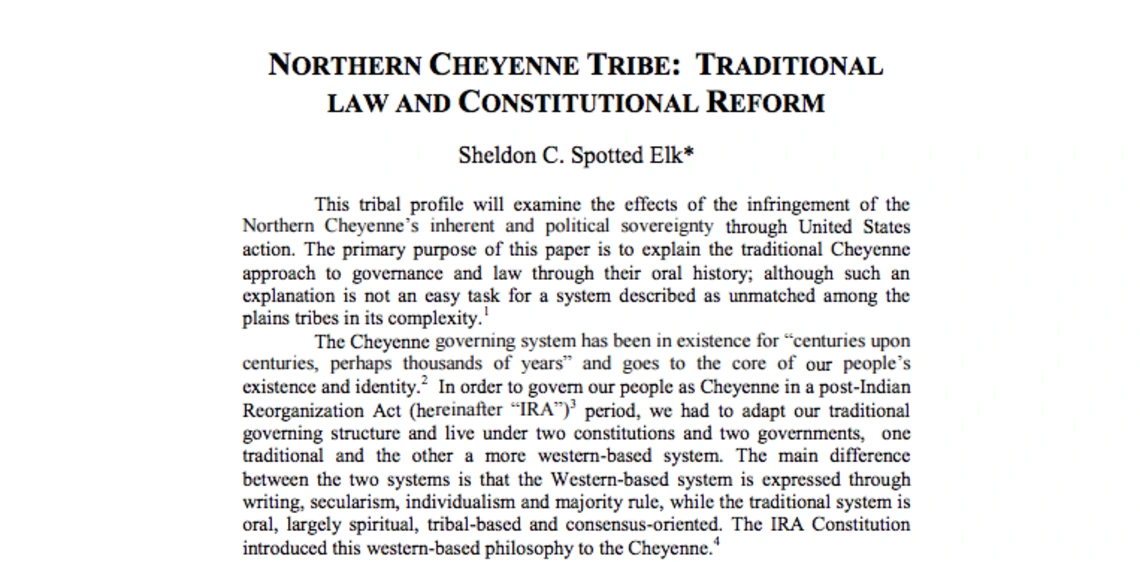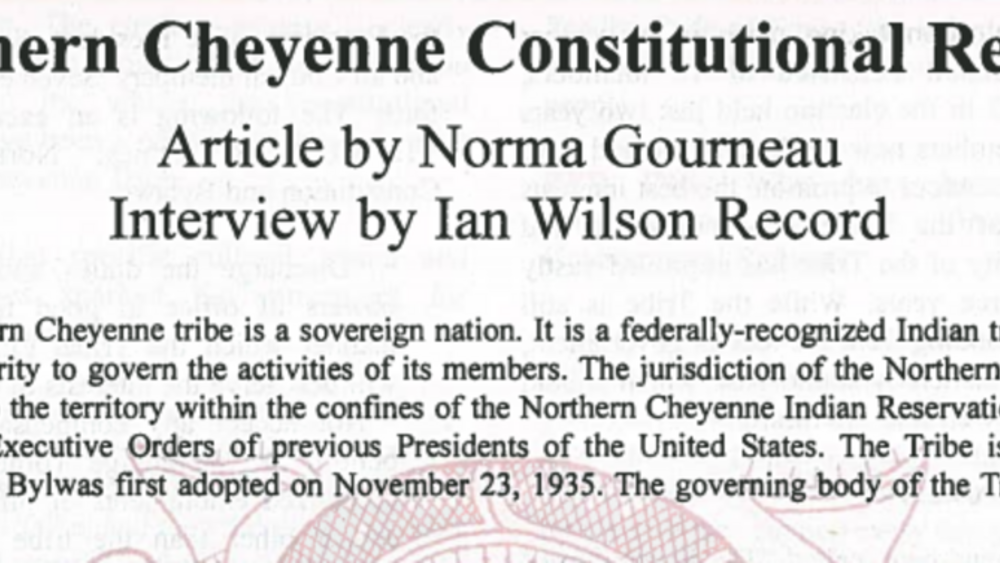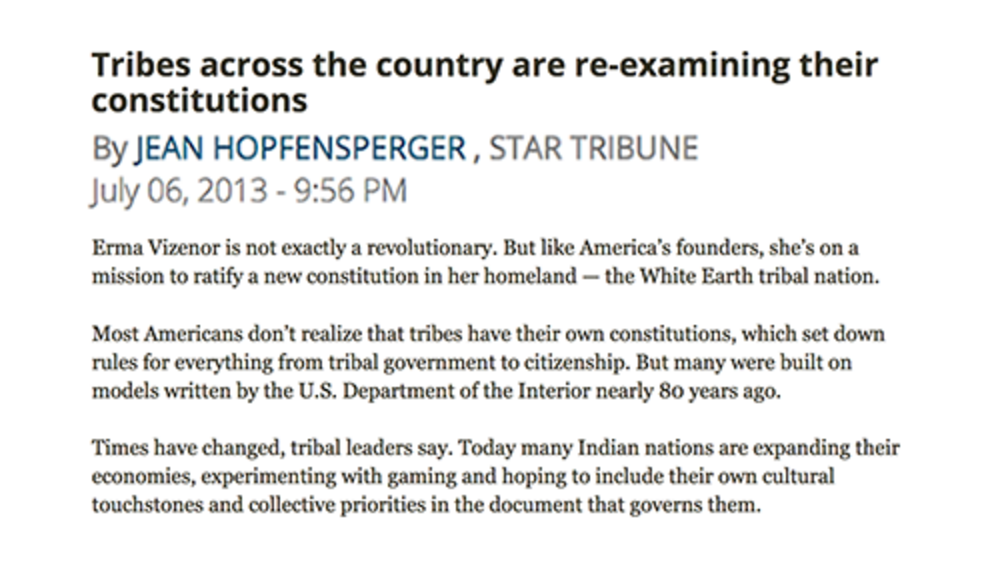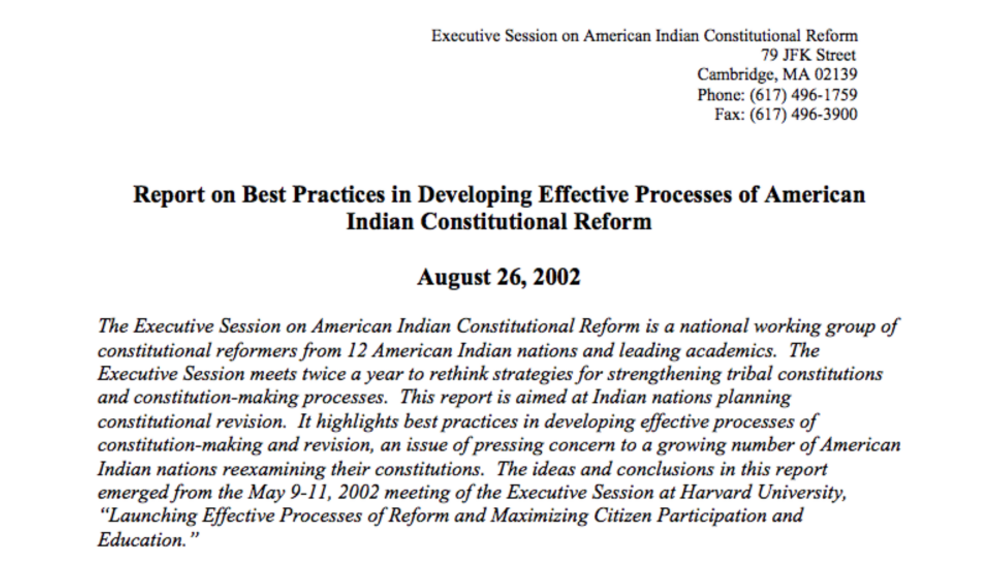This profile by Sheldon C. Spotted Elk examines the U.S. government's infringement on the Northern Cheyenne's political sovereignty. Most significantly, it examines the relationship between the oral history of the Northern Cheyenne and its impact on traditional tribal governance and law. Following the Northern Cheyenne's adoption of a modern constitution, many members fought to continue living under a traditional constitution. Ultimately, the Northern Cheyenne adopted a written, IRA-compatible constitution while maintaining an oral constitution. The delicate balance allows the Northern Cheyenne to address modern issues while also keeping the fundamental traditional and customary law of the tribe alive.
Additional Information
Spotted Elk, Sheldon C. "Northern Cheyenne Tribe: Traditional Law and Constitutional Reform." Tribal Law Journal. Volume 12: 2011/ 2012. UNM School of Law. Albuquerque, New Mexico. 2012. Article. (https://digitalrepository.unm.edu/cgi/viewcontent.cgi?article=1082&context=tlj, accessed May 30, 2024)




